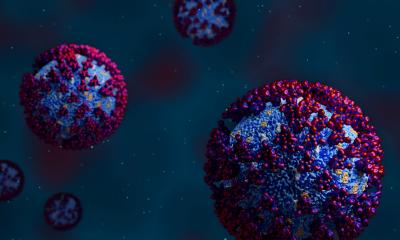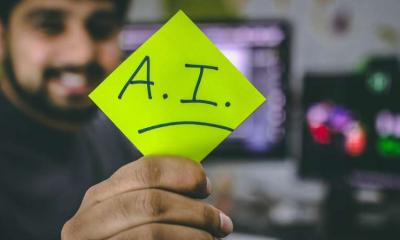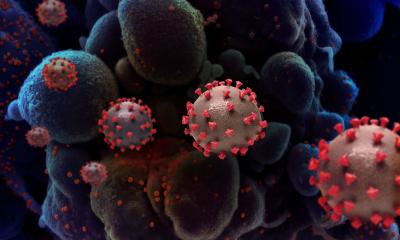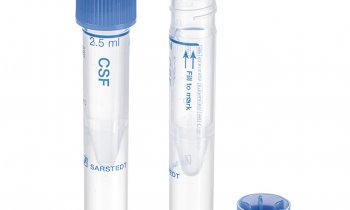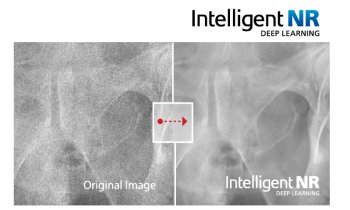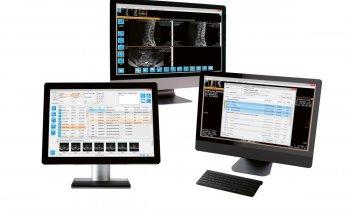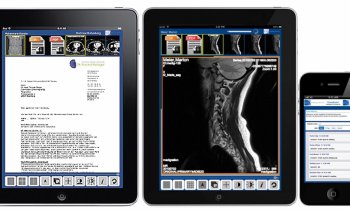Image source: Pixabay/Mary Theresa McLean / CDC (Mashup: HiE)
News • Corona-induced coughing
New app listens to the 'sounds of COVID-19'
A new app, which will be used to collect data to develop machine learning algorithms that could automatically detect whether a person is suffering from COVID-19 based on the sound of their voice, their breathing and coughing, has been launched by researchers at the University of Cambridge.
The COVID-19 Sounds App is now available as a web app for Chrome and Firefox browsers. Versions for Android and iOS will be available soon.
As COVID-19 is a respiratory condition, the sounds made by people with the condition – including voice, breathing and cough sounds – are very specific. A large, crowdsourced data set will be useful in developing machine learning algorithms that could be used for automatic detection of the condition. "There’s still so much we don’t know about this virus and the illness it causes, and in a pandemic situation like the one we’re currently in, the more reliable information you can get, the better," said Professor Cecilia Mascolo from Cambridge’s Department of Computer Science and Technology, who led the development of the app.
Coughing and breathing patterns as a dead giveaway
To make better algorithms that could be used for early detection, we need as many samples from as many participants as we can get
Cecilia Mascolo
"I am amazed at the speed that we managed to connect across the University to conceive this project, and how Cecilia's team of developers came together to respond to the urgency of the situation," said Professor Pietro Cicuta from Cambridge’s Cavendish Laboratory, a member of the team behind the app’s development. Professor Andres Floto, Professor of Respiratory Biology at the University, and Research Director of the Cambridge Centre for Lung Infection at Papworth Hospital, Cambridge, has also advised on the clinical aspects of the app.
The COVID-19 Sounds App collects basic demographic and medical information from users, as well as spoken voice samples, breathing and coughing samples through the phone’s microphone. The app will also ask users if they have tested positive for the coronavirus. In addition, the app will collect one coarse grain location sample. The app will not track users, and will only collect location data once when users are actively using it. The data will be stored on University servers and be used solely for research purposes. The app will not provide any medical advice.
Once they have completed their initial analysis of the data collected by the app, the team will release the dataset to other researchers. The dataset could help shed light on disease progression, further relationship of the respiratory complication with medical history, for example. "Having spoken to doctors, one of the most common things they have noticed about patients with the virus is the way they catch their breath when they’re speaking, as well as a dry cough, and the intervals of their breathing patterns," said Mascolo. "There are very few large datasets of respiratory sounds, so to make better algorithms that could be used for early detection, we need as many samples from as many participants as we can get. Even if we don’t get many positive cases of coronavirus, we could find links with other health conditions."
Source: © University of Cambridge (CC BY 4.0)
07.04.2020



